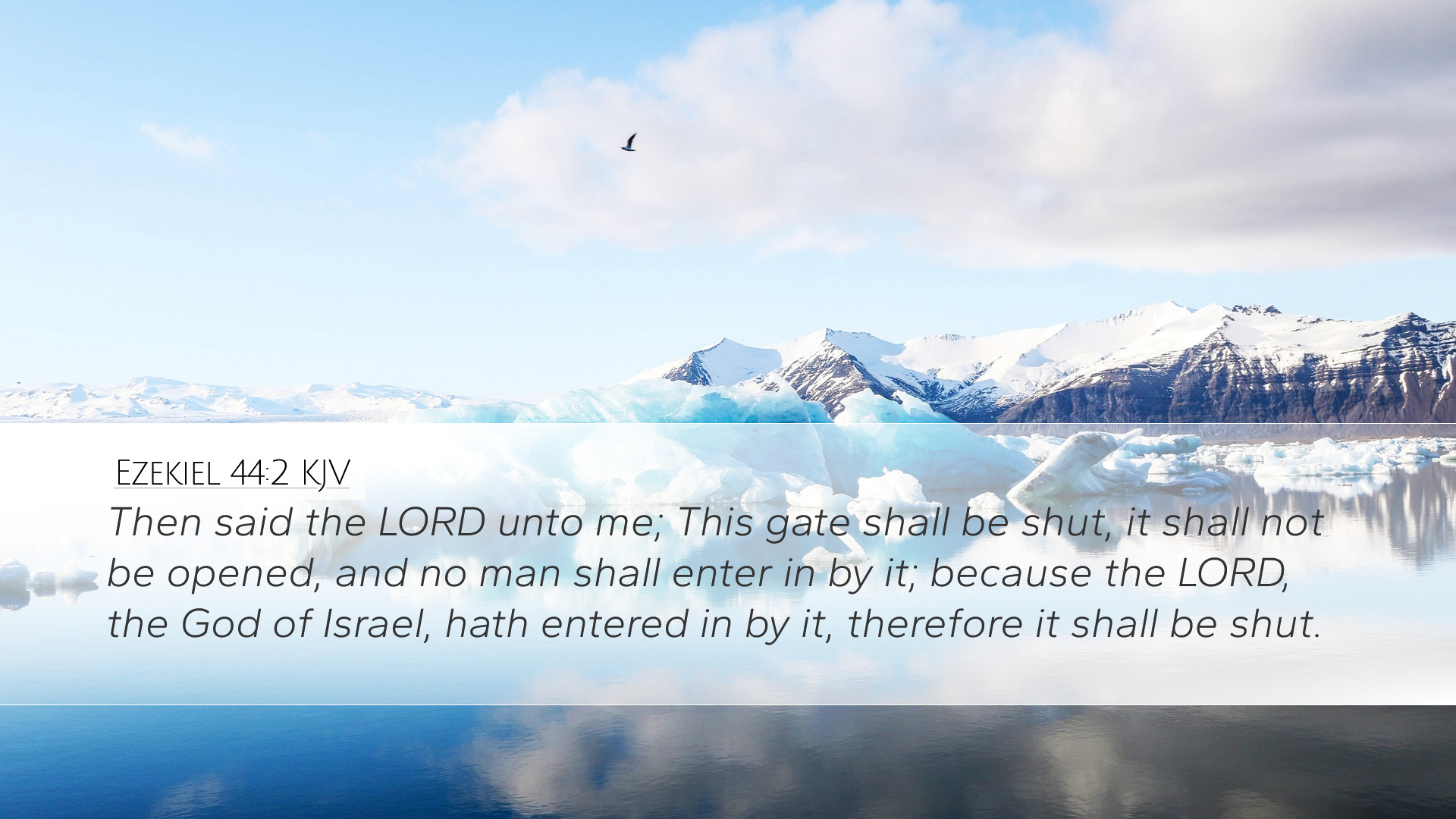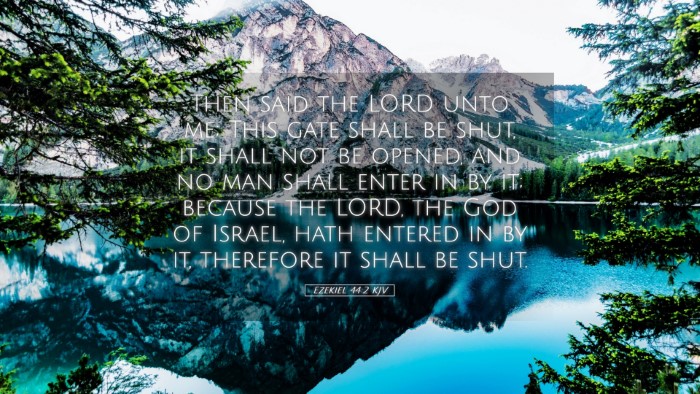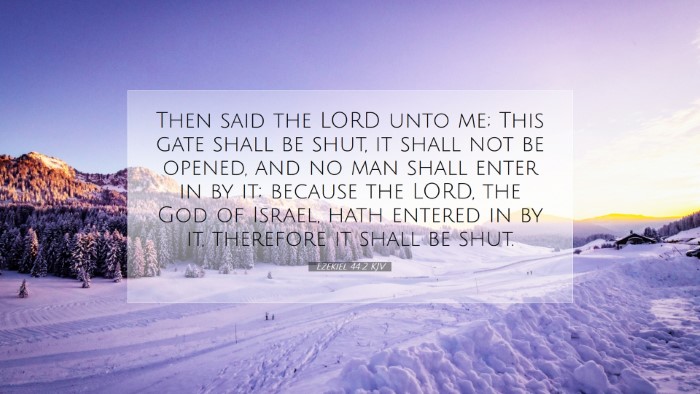Ezekiel 44:2 Commentary
Verse Reference: Ezekiel 44:2 - "Then said the Lord unto me; This gate shall be shut, it shall not be opened, and no man shall enter in by it; because the Lord, the God of Israel, hath entered in by it; therefore it shall be shut."
Introduction
The passage of Ezekiel 44:2 invites deep theological reflection on the nature of God's holiness, the significance of the Temple, and the implications for worship and ministry. By examining this verse through the insights of renowned biblical commentators, we can expand our understanding of its spiritual and practical ramifications for the church today.
Contextual Background
The book of Ezekiel is a profound theological treatise from the prophet Ezekiel, addressing Israel's exile and foreshadowing restoration. The vision of the Temple in Ezekiel 40-48 serves as a symbol of God's enduring presence among His people. Ezekiel 44 marks a pivotal moment where God delineates sacred spaces and emphasizes the sanctity of worship.
Historical Significance
This verse is part of a larger section where God specifies the regulations regarding the Temple and its service post-exile. It serves as a reminder of God's covenantal faithfulness while also instructing the people on maintaining purity in worship.
Commentary Insights
Matthew Henry's Perspective
Divine Holiness: Matthew Henry emphasizes that the shut gate represents the unapproachability of God’s holiness. The Lord's specific instruction regarding the gate illustrates that access to His presence is not to be taken lightly. Henry highlights the importance of reverence in worship, implying that certain conditions must be met to commune with the Almighty.
Albert Barnes' Analysis
Symbolism of the Gate: Albert Barnes interprets this closed gate as a profound symbol of God’s sovereignty and the management of His sanctuary. He notes that the gate being shut signifies the end of an old order and the establishment of a new covenant relationship. Barnes elaborates that this closure indicates exclusivity to those who truly worship and are cleansed by God’s grace.
Adam Clarke's Explanation
Access and Exclusion: Adam Clarke provides considerable insight into the theological implications of the closed gate. He suggests that the gate's closure to others signifies that Jesus Christ, as the mediator, will provide the only access to God. Clarke asserts that it symbolizes a future reality where only those accepted by God may enter His presence, drawing parallels with New Testament theology.
Theological Implications
The implications of Ezekiel 44:2 challenge theologians and clergy to examine the heart of worship and the conditions for entering into God’s presence. The concepts of purity, holiness, and divine selection are foundational to understanding this passage.
Holiness and Worship
- God's Immutable Nature: The closeness of God reveals His unchanging nature and the unapproachable light in which He dwells (1 Timothy 6:16).
- Access through Mediators: The closing of the gate reminds believers of the necessity of Christ's mediation whereby we cannot approach the Father except through Him (John 14:6).
- Covenantal Exclusivity: God’s choice of Israel as His people reflects His call for holiness and separation from the nations, which presupposes a commitment to purity in worship.
Practical Applications for Today
Understanding Ezekiel 44:2 is pertinent for modern ministry and Christian living. Pastors and teachers can use this commentary to guide congregational understanding of God's holiness, worship practices, and the need for spiritual integrity.
Encouragement for Spiritual Leaders
- Teach Reverence for God: Encourage congregants to approach God with a sense of reverence and awe, recognizing the holiness of His presence.
- Foster Conditions of Worship: Highlight the importance of preparation and purity in worship, helping believers to understand the significance of leading a holy life.
- Explore the Role of Christ: Institute teachings that reinforce the understanding of Christ as the gate through which we enter into a relationship with God.
Conclusion
Ezekiel 44:2 serves as a crucial reminder of God’s holiness and the appropriate way to approach Him in worship. Drawing from the rich insights of public domain commentaries, this passage provides a framework for understanding access to God through Christ, the holiness required of His people, and the sacredness of the worship experience. As we reflect on this verse, may we all seek to embody the purity and reverence that the Lord desires in His worshipers.


